Wide-ranging ECE research presented at 2016 Engineering Graduate Symposium
Systems to study cancer stem cells, new methods to remotely measure snow and ice thickness, radar for autonomous vehicles, navigation systems that don’t rely on GPS, nanowire lasers, and methods to model lithium-ion batteries were just a few of the many winning projects presented by ECE students
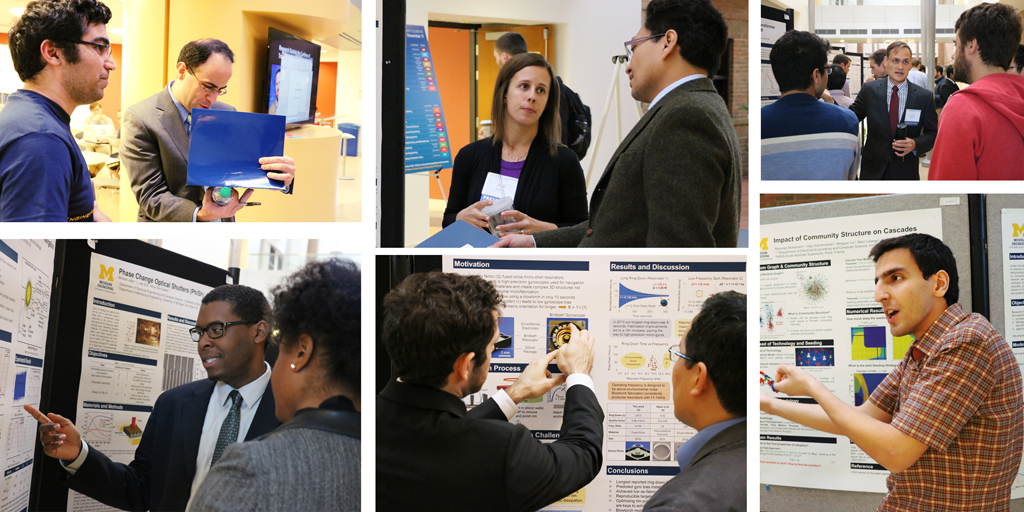
 Enlarge
Enlarge
Systems to study cancer stem cells, new methods to remotely measure snow and ice thickness, radar for autonomous vehicles, navigation systems that don’t rely on GPS, nanowire lasers, and methods to model lithium-ion batteries were just a few of the many winning projects presented by ECE students at the 2016 Engineering Graduate Symposium. The College of Engineering’s annual event to highlight research and engage prospective graduate students gave ECE presenters the chance to demonstrate their work to prospective and fellow students and visiting ECE alumni.
Posters and presentations were judged by faculty and a visiting group of 13 returning ECE alumni, and winners were chosen in each area of study. 13 ECE students were recognized as 1st or 2nd Place in their division, and one presenter earned a Towner PhD Research Award.
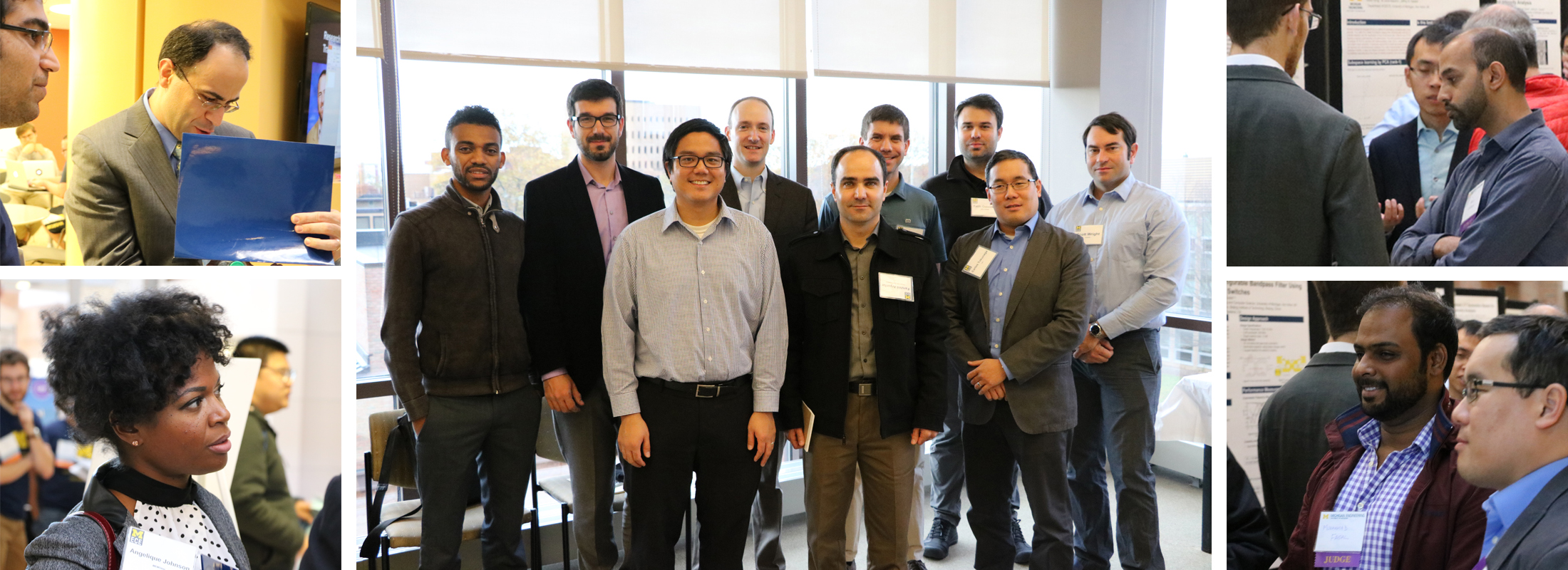
 Enlarge
Enlarge
Thirteen alumni were invited to campus to judge presentations, meet with students, and enjoy a casual reception at the end of the day. The following alumni were present: Farshid Aryanfar (Straight Path Communications), Nader Behdad (University of Wisconsin), Nick Chang (Vencore Labs), Fikadu Dagefu(US Army Research Laboratory), Muhammad Faisal (Movellus Circuits), Razi-ul Haque (DOSE Medical), Angelique Johnson (MEMStim), Andrew Klesh (NASA Jet Propulsion Lab), Antonios Matakos (Toshiba Medical Research Institute), Fatih Ozkeskin (Applied Materials), Patrick Shea (Northrop Grumman), Carlos Tokunaga (Intel), and Scott Wright (Exponent).
Richard and Eleanor Towner Prize for Outstanding Ph.D. Research Award
This is a college-level competition intended to highlight the innovation and creativity demonstrated by our Ph.D. students. Each winner received $2500 and had their name added to a perpetual plaque that is displayed in the lobby outside of Chesebrough Auditorium. Three students were awarded a Towner Prize, one representing ECE:
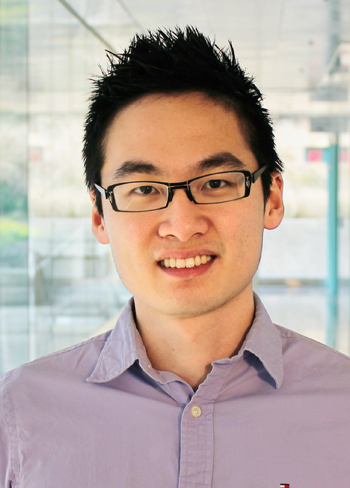
 Enlarge
Enlarge
Yu-Heng Cheng – for “High-Efficiency Microfluidics for Single Cell Phenotypic and Genotypic Analysis of Rare Cancer Cells.”
Recent research suggests that cancer stem-like cells (CSCs) are the key subpopulation for tumor relapse and metastasis. To reliably quantify rare CSCs (1-5%), thousands of single-cell suspension cultures are needed. Yu-Heng developed high-throughput, single-cell-derived tumor sphere assay chips, facilitating the tracking of up to ~10,000 cells on a chip with ~76.5% capture rate. The technique could one day help screen potential cancer treatments based on an individual patient’s tumor and help researchers better understand CSCs. It also sheds light on a controversy: are large cells or small cells more likely to be cancer stem cells?
Yu-Heng was advised by Prof. Euisik Yoon.
Technical Session Awards
The following graduate students earned awards for their research projects in areas of research associated with Electrical and Computer Engineering:
Applied Electromagnetics and Plasma Science:
Mohammad Mousavi – 1st place, for “Elevation Angular Dependence of Wideband Autocorrelation Radiometric (WiBAR) Remote Sensing of Dry Snowpack and Lake Icepack.” Advised by Kamal Sarabandi.
Armin Jam – 2nd place, for “A Novel Sub-Millimeterwave Radar System for Autonomous Vehicle and Collision Avoidance Applications.” Advised by Kamal Sarabandi.
Fatemeh Akbar – 3rd place, for “A Novel Integrated Scalable Phased Array with a Reduced Number of Phase Shifters.” Advised by Amir Mortazawi.
Shurun Tan – 4th place, for “Modal Representation of Broadband Green’s Function with Applications in Periodic Structures.” Advised by Leung Tsang.
Integrated Circuits, VLSI, and Microsystems:
Christopher Boyd – 1st place, for “Low-Noise MEMS Gyroscope System for Navigation.” Advised by Khalil Najafi.
Tal Nagourney – 2nd place, for “130 Second Ring-Down Time and 3.98 Million Quality Factor in 10 kHz Fused Silica Micro Birdbath Shell Resonator.” Advised by Khalil Najafi.
Medicine and Translational Research:
Zhixiong Zhang – 2nd place, for “Scalable Multiplexed Drug-combination Screening Platform Using 3D Microtumor Model.” Advised by Euisik Yoon.
Optics, Photonics, and Solid-State Devices
Youngbae Son – 1st place, for “In-situ Chemical Modification of Schottky Barrier in Solution-processed Zinc Tin Oxide Diode.” Advised by Becky Peterson.
Arnab Hazari – 2nd place, for “III-Nitride Monolithic Nanowire Array Edge-Emitting 1.3 μm Diode Laser on (001) Silicon Substrate.” Advised by Pallab Bhattacharya.
Justin Easley – 3rd place, for “Variable-Field Hall Effect Analysis of HgCdTe Epilayers with Very Low Doping Density.” Advised by Jamie Phillips.
Power and Energy
Jonas Kersulis – 1st place, for “Renewable Voltage Regulation, Transformer Parameters, and a Tapping Tradeoff.” Advised by Ian Hiskens.
Bin Wu – 2nd place, for “Mechanical Modeling of Agglomerate in Lithium-Ion Battery Electrodes.” Advised by Wei Lu.
System and Communication Engineering
Mohammad Rasouli – 1st place, for “Scalable Control of Cyber-Physical Systems.” Advised by Demosthenis Teneketzis.
Mehrdad Moharrami – 2nd place, for “Impact of Community Structure on Cascades.” Advised by Mingyan Liu.
Signal and Image Processing, Computer Vision
David Hong – 1st place, for “Predicting the Asymptotic Performance of Rank-1 PCA with Heteroscedastic Data.” Advised by Jeff Fessler.
Lianli Liu – 2nd place, for “Female Pelvic Synthetic CT Generation Based on Joint Shape and Intensity Analysis.” Advised by Jeff Fessler.
Read more about the work of these and other presenters in the Book of Abstracts.
ECE Presenters
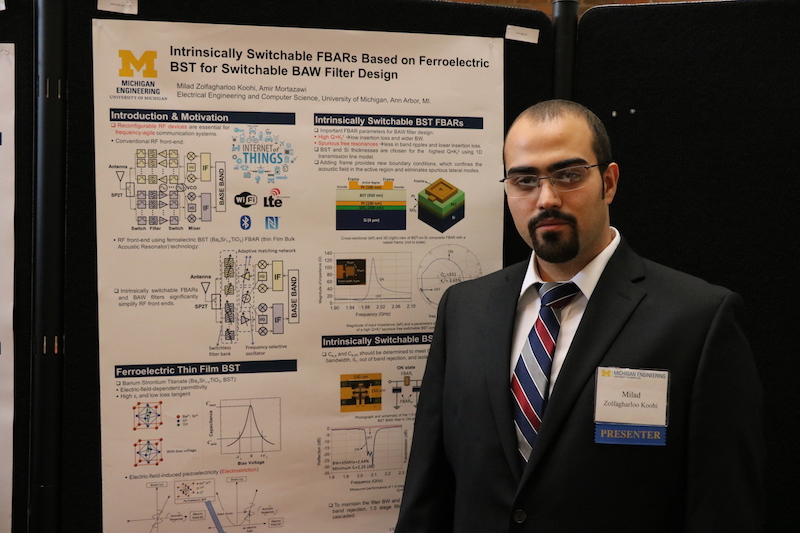
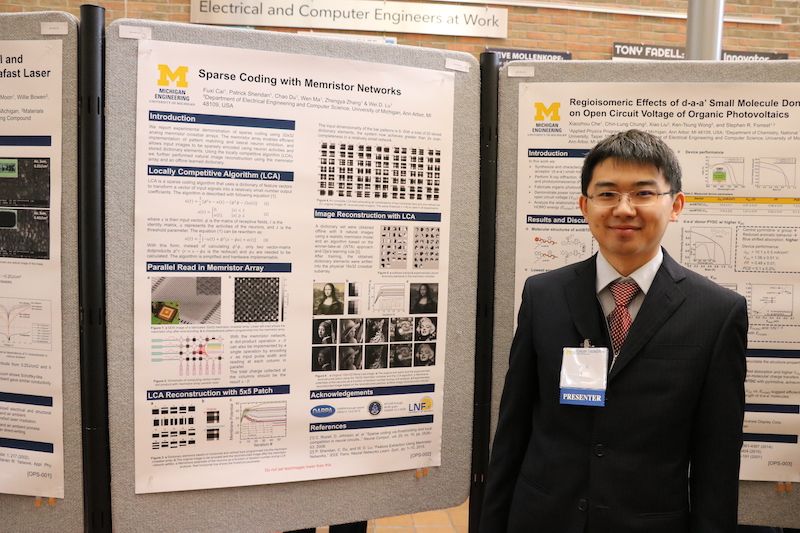
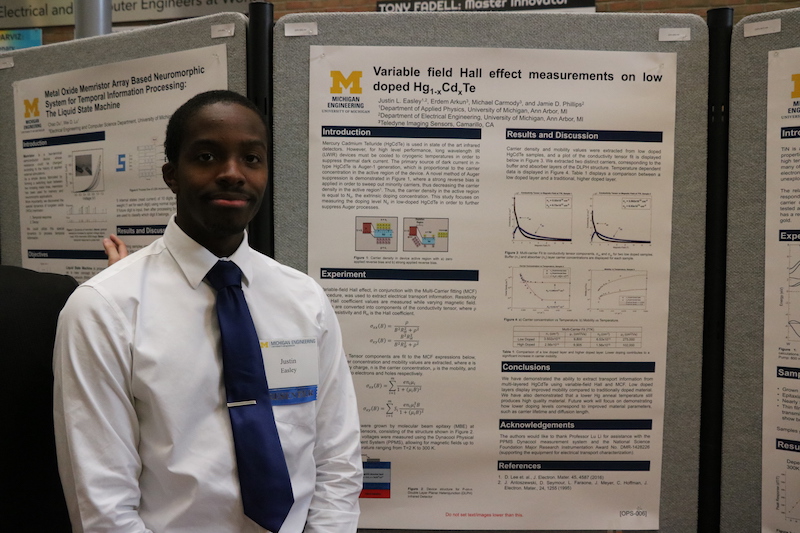
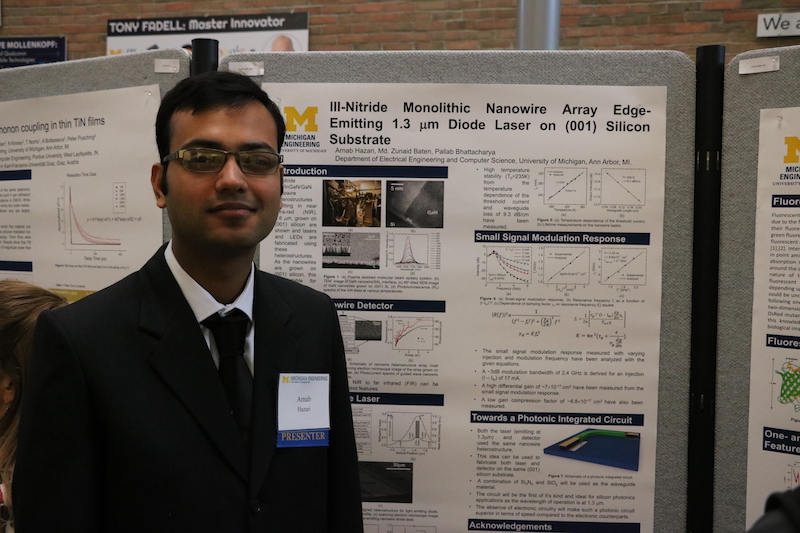
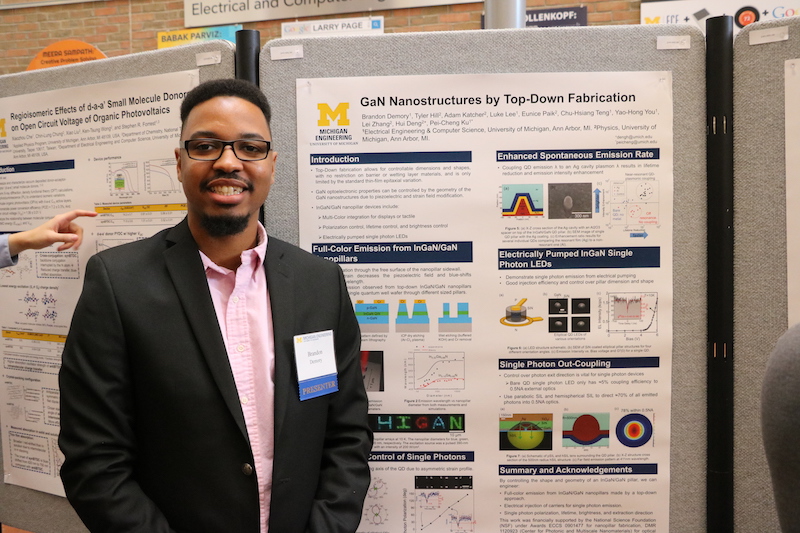
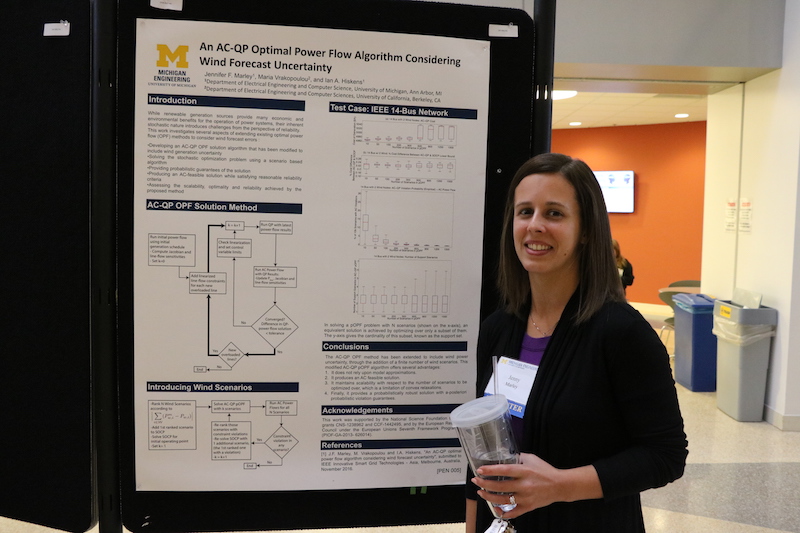
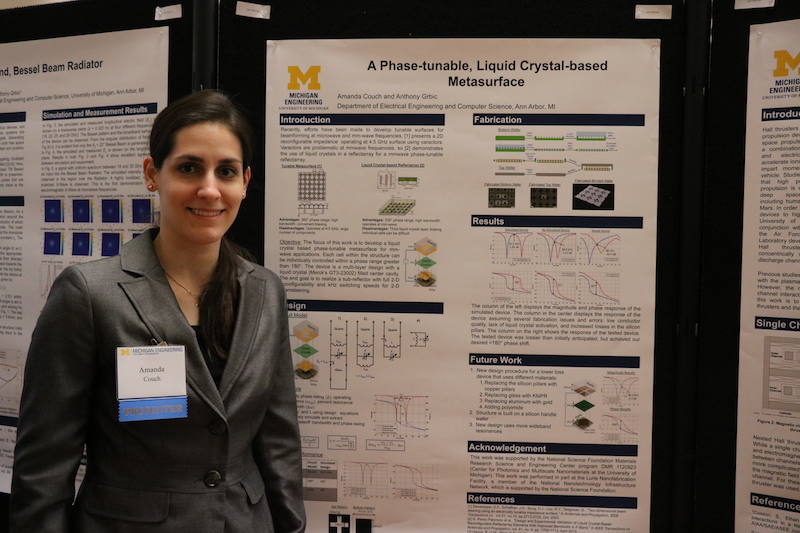
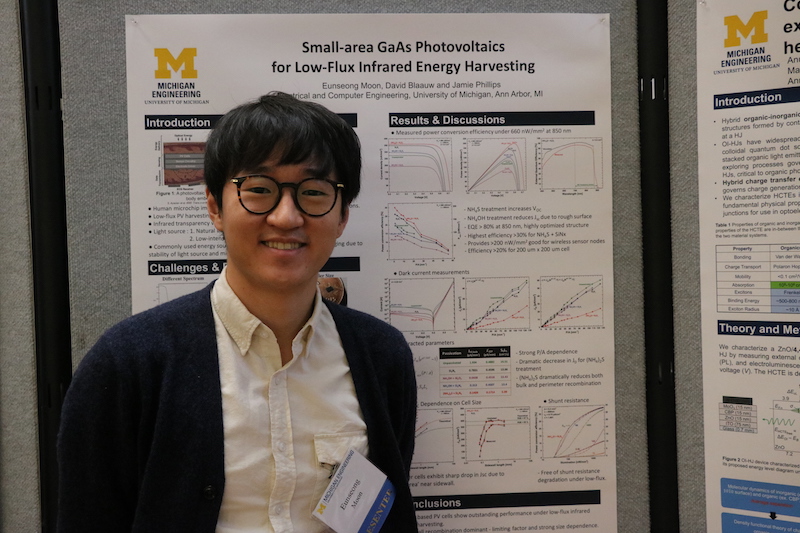
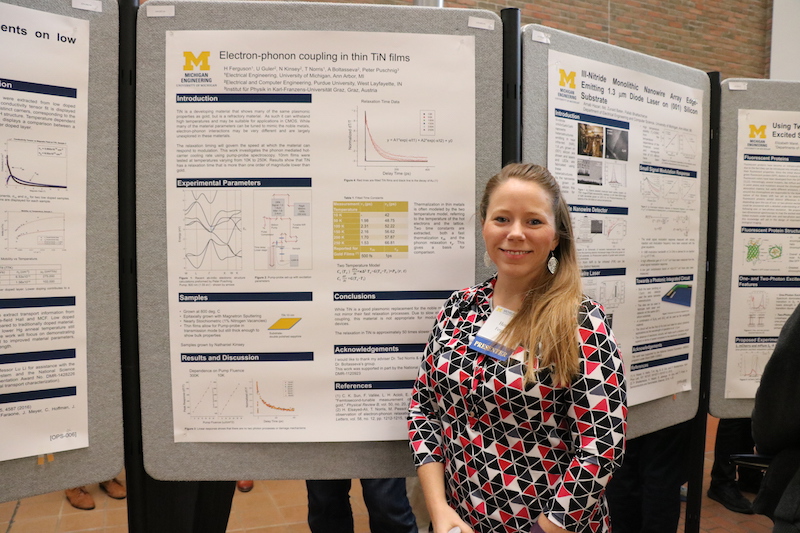
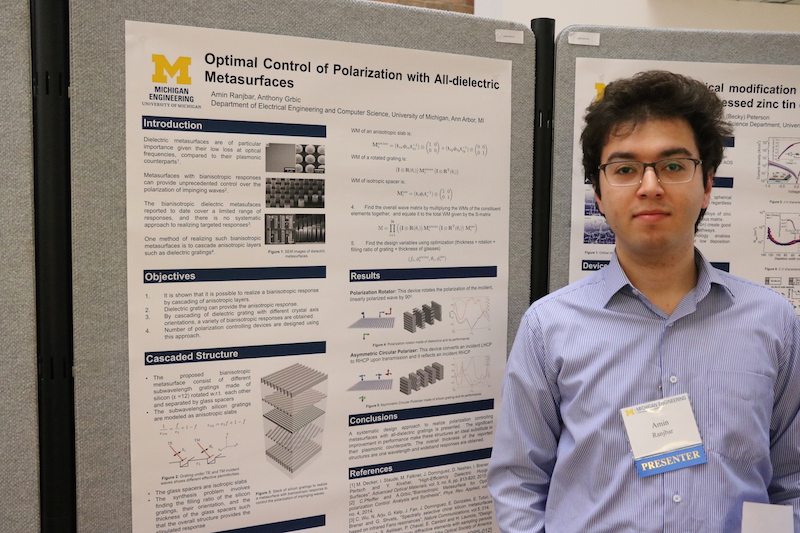
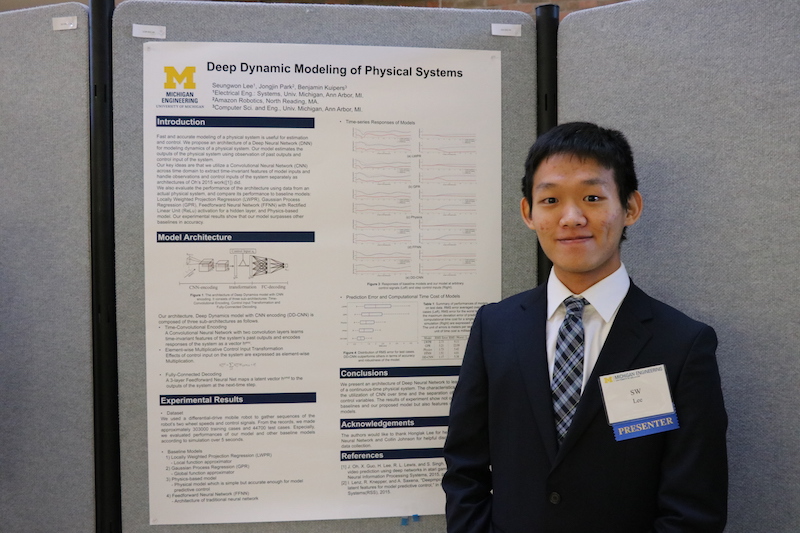
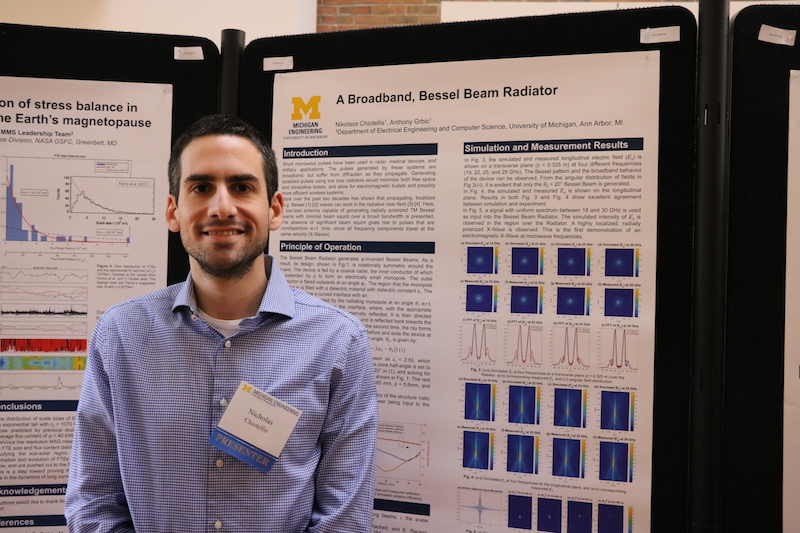
 MENU
MENU